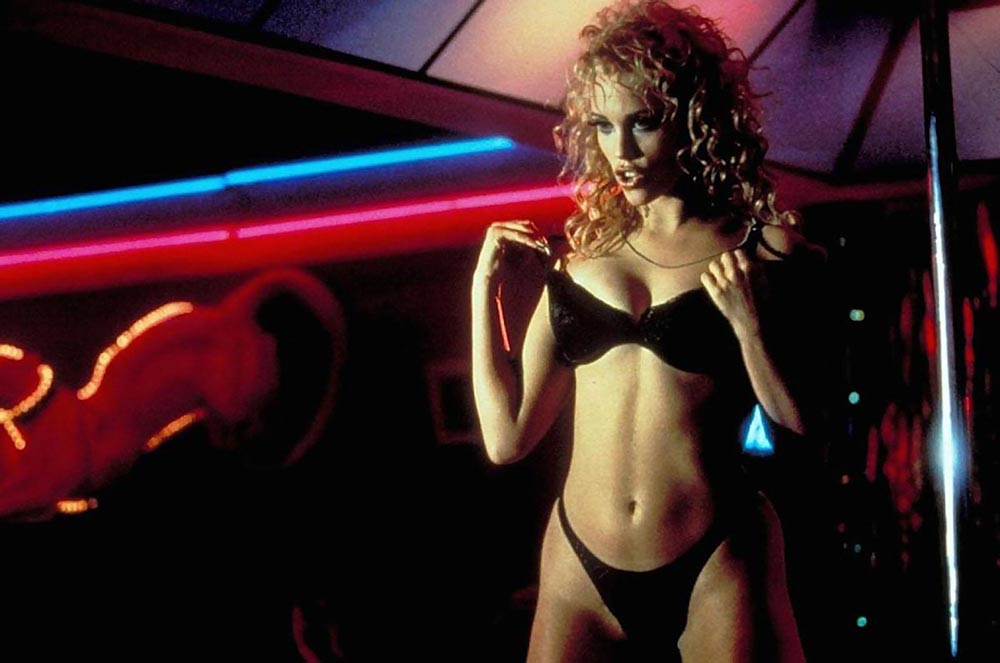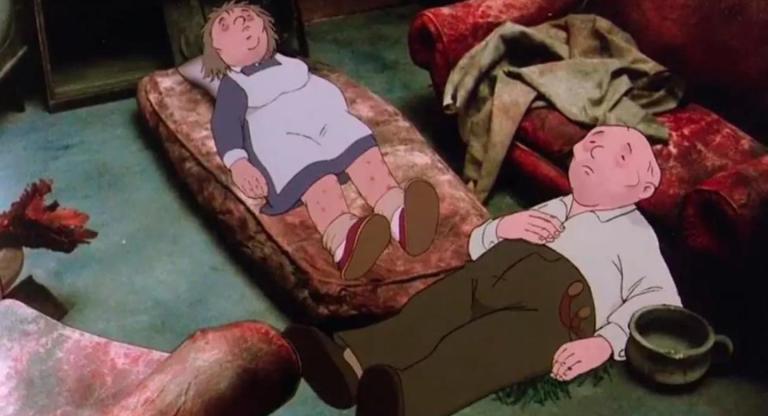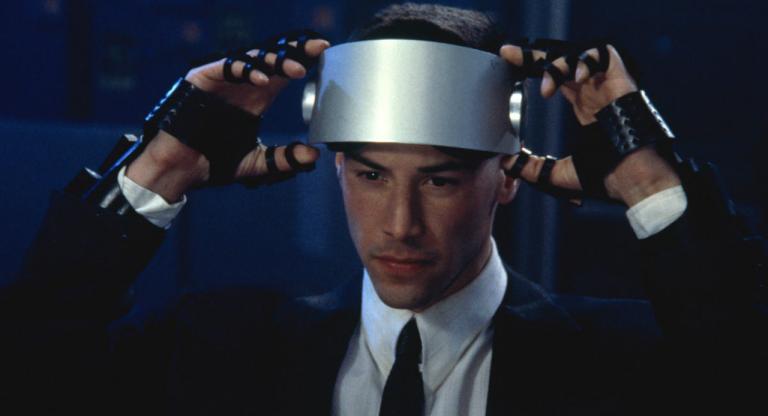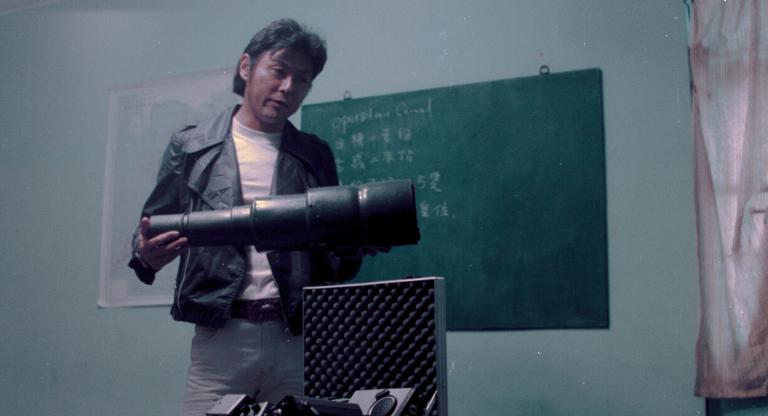When I think of Showgirls (1995), I am often reminded of a classic Dolly Parton quote, “It takes a lot of time and money to look this cheap, honey.” Few films do credit to this specific formula of labor, sincerity, and commitment to aestheticized capitalistic excess, but Showgirls does so magnificently. The critical lashing that Showgirls has received in some corners over the last twenty-six years is part of its mystique. However, those who herald it as “so bad it’s good” camp similarly miss the urgent zeal that drives the film. Showgirls is deadly serious. The film’s ludicrous content is a testament to the absurdist truth of trying to make it big under capitalism.
Hollywood loves a wide-eyed nobody becoming a somebody at the expense of her humanity. Beat by beat, the plot can best be described as All About Eve: Vegas edition. The elder, established entertainer (Gina Gershon) mentors and sabotages the young ingenue’s career prospects, and the young ingenue retaliates by taking her man and replacing her as the lead. But, unlike the 1950 film, there’s a sinister, anticipatory affect that lurks over Showgirls.
Nomi, brilliantly played in what should have been a star-making turn by Elizabeth Berkley feels everything in the film and regurgitates those excess feelings back to the audience. She anticipates the chaotic doom of the film’s climax through sheer manic intensity and terror, in cat-crawling pole routines or her hydro-aerobic sex scene with Kyle MacLachlan. The gold-glitz palette and Alan Rachins yelling “Thrust it!” during an absurdly intense audition are reprieves from the bleakness of a film that is ultimately about the systemic abuse of women by men.
After a brutal gang-rape that leaves Molly (Gina Ravera) hospitalized, Nomi is horrified to find out that her boss-turned-lover intends to pay for Molly’s silence while enabling the career of the abuser. In 1995, this plot point was, like the rest of the film, met with irascible ire from male reviewers. And yet, from our contemporary vantage point, this climax is the most realistic thing about the film. What is less likely, and more frustrating, is how Molly—the only Black woman in the film—is sidelined in her own narrative as a survivor in favor of making Nomi an avenging angel. One could read Nomi’s reprisals as acts of sisterhood, but given the way in which white femininity continues to reach its subjectivity at the expense of Black womanhood, such a reading unremarked upon is one that I cannot endorse.
Showgirls is meant to crack at its glitter-glued seams, for the world it operates within is not stable. Like its killer soundtrack, featuring original tracks by David Bowie (“I’m Afraid of Americans”) and Siouxsie and the Banshee (their final single, “New Skin”), Showgirls is all that American capitalism promises: new beginnings amidst unsustainable excess waste, violence against women, and a trajectory that continues further out west after each failed start. No worries though—with no future in sight, who cares about the past?
Showgirls screens November 26, 28, December 1, and 2 on 35mm at IFC Center as part of the series “Showman: Paul Verhoeven.”



